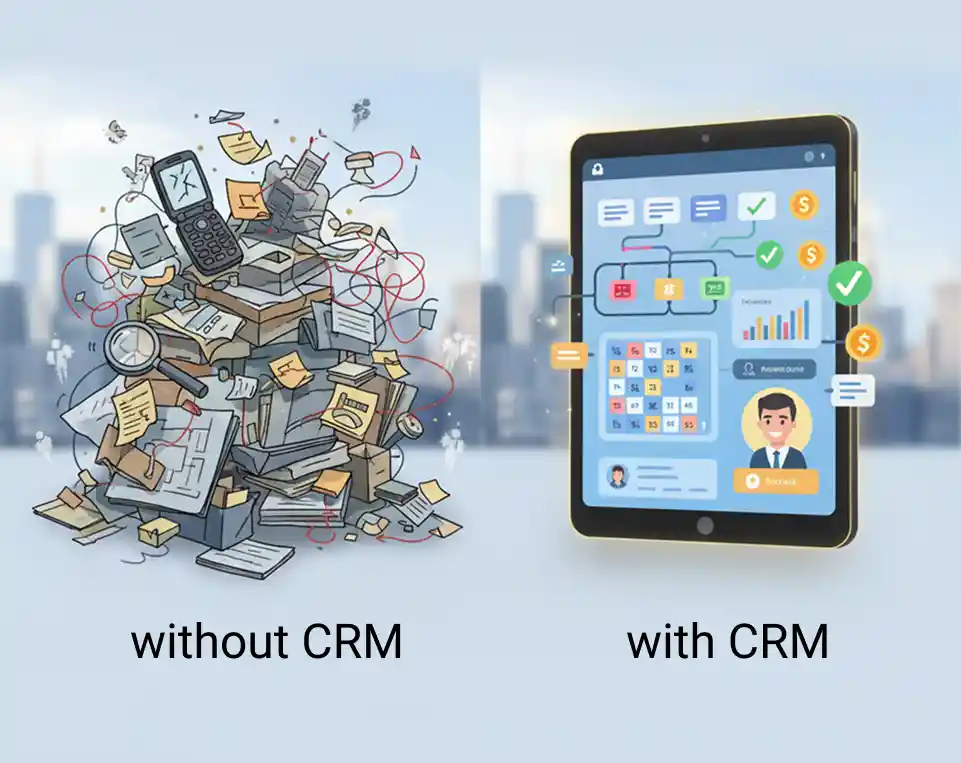
2025-11-01
In the competitive world of construction and real estate sales, every potential client is a gold mine. Losing even a single lead due to inattention, delay, or data confusion can cost the company significant profits. This is where a CRM system for a developer comes to the rescue—a powerful tool that transforms chaos into an ordered and profitable system.
Why Can't a Developer Do Without a CRM?
The construction business has its specifics: a long deal cycle, large sums, the need to manage a significant amount of information about units (apartments, floors, sections—the so-called "availability grid" or "shahmatka"), and multichannel communications. CRM (Customer Relationship Management) is not just a contact database; it is a strategy and software for managing customer relationships at every stage.
Key Benefits of CRM for a Construction Company:
- Unified Client and Unit Database: The entire history of interaction, customer needs, preferences, and unit details are stored in one place. This prevents data loss and makes the information the company's asset, not just an individual manager's.
- Lead Control (Applications): CRM ensures 100% transparency in the lead processing process. From tracking the traffic source (which advertisement, which website) to distribution among managers and status tracking. (Read more about lead management here:
Lead Management - Routine Automation: The system takes over routine tasks: reminders about calls/meetings/payments, automatic generation of documents (contracts, invoices), which frees up managers' time for the main goal—sales.
- Efficiency and Analytics: The head of the sales department receives online reporting on the effectiveness of each manager, conversion rates at different stages of the sales funnel, and the actual ROMI (Return on Marketing Investment). This allows for quick adjustments to the strategy.
- Unit Management (Availability Grid): Specialized real estate CRM systems integrate with the "availability grid" or have built-in functionality for visual control of apartment availability, reservations, and sales.
Functionality That Helps Not to Lose a Single Client
To truly maximize conversion and retain a client at all stages, a developer's CRM must have the following capabilities:
| Functionality | How It Helps Not to Lose a Client |
| Multichannel Lead Collection | Automatically collects leads from the website, IP telephony, messengers, and social networks, preventing any single application from getting lost. |
| Sales Funnel | Shows where each client is in the process. Allows managers to focus on "hot" deals and not forget about those who are "maturing." |
| IP Telephony Integration | Recording of all conversations and automatic attachment to the client card. This eliminates the human factor ("I forgot what I promised") and allows monitoring of work quality. |
| Reminder System | Automatic pop-up notifications for managers about scheduled calls, meetings, and the need to send information. Not a single follow-up step will be missed. |
| Database Segmentation | Allows you to quickly filter clients by interest (e.g., "only two-bedroom apartments in this residential complex") for personalized offers and targeted communication. |
| Integration with Availability Grid (Shahmatka) | Real-time relevant information about the apartment status (available, reserved, sold), which prevents the sale of the same apartment to two clients. |
How to Choose "Your" CRM?
Choosing a CRM is an investment. For a developer, it is important that the system is not just universal but specialized for the needs of the real estate market.
- Specialization: Choose a solution that already has experience working with developers and understands the specifics: working with residential complexes, sections, the "availability grid," and the long deal cycle.
- Integrations: Make sure the CRM easily integrates with your main tools: IP telephony, website, popular advertising channels, and, ideally, with internal accounting software.
- Reporting: Check for flexible analytics tools that allow you to build reports on key manager performance indicators (KPIs), lead sources, and sales dynamics.
- Mobility: Managers often work "in the field" (showings, meetings). Having a convenient mobile application is critically important for operational data entry and planning.
Conclusion
CRM for a developer is a necessity, not a luxury. It is a tool that helps build a transparent, controlled, and scalable sales process. Implementing the system allows you not only to not lose a single client but also to significantly improve the quality of service, increase conversion, and, consequently, maximize company profit. Start with an audit of your lead management process to understand where you are losing potential buyers today.
Recent post
Tagscloud
Subscribe our weekly subscription
Add some text to explain benefits of subscripton on your services. We'll send you the best of our blog just once a weekly.
_11zon.webp)
_11zon.webp)